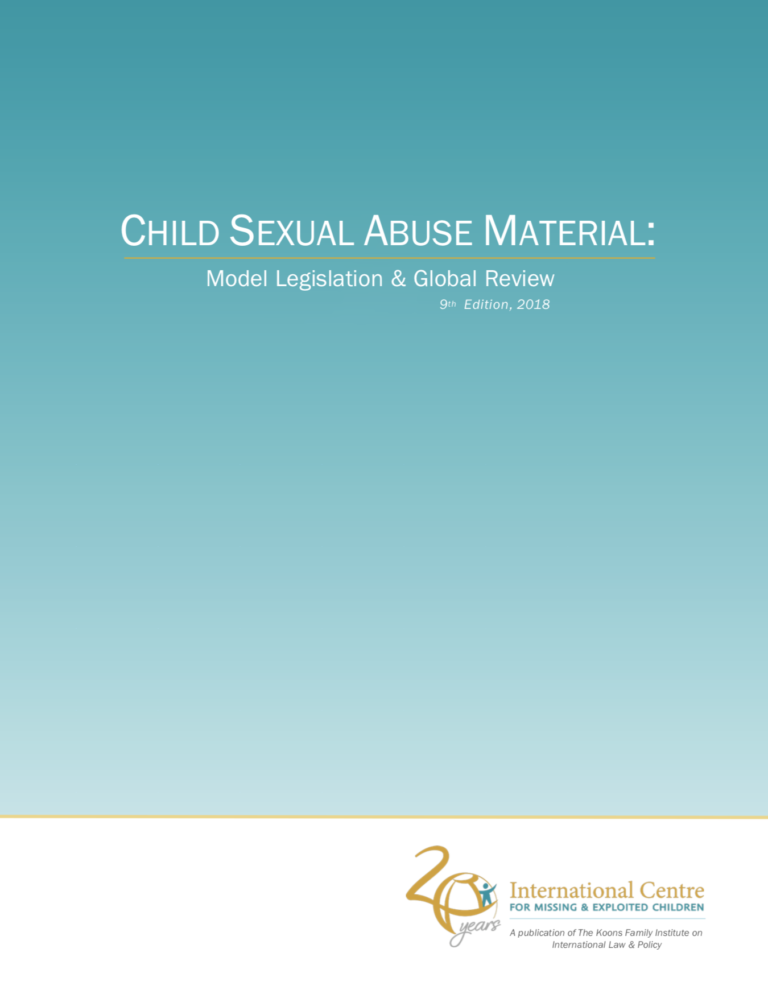9th edition
Since 2006, ICMEC has tallied the presence – and absence – of adequate anti-child sexual abuse material (CSAM) law in 196 countries. They have analyzed the strengths and shortcomings of the laws that do exist, and, based on the results of that intensive effort, they have developed model legislation that can be adopted and adapted as needed to be effective in any society or culture.
Their groundbreaking report, Child Sexual Abuse Material: Model Legislation & Global Review (formerly Child Pornography: Model Legislation & Global Review), first released in April 2006, is now in its 9th Edition. Their study of national legislation looks to see which countries:
- Generally outlaw CSAM;
- Define what “CSAM” is;
- Criminalize technology‐facilitated CSAM offenses;
- Ban possession of CSAM, regardless of the intent to distribute; and
- Require Internet Service Providers (ISPs) to report suspected CSAM to law enforcement or to some other agency.
In addition to a legislative review, the report offers a “menu of concepts” that countries can consider when drafting anti-CSAM legislation. Key topics covered include:
- Definitions;
- Offenses;
- Mandatory Reporting;
- Industry Responsibility;
- Sanctions and Sentencing; and
- Law Enforcement Investigations and Data Retention.
Their most recent report, published in December 2018, finds that 118 countries have in place legislation deemed sufficient to combat child pornography. However, more work remains to be done. 16 countries still do not have legislation that deals specifically with CSAM. Of the 62 countries that do have some legislation in place, 51 of them do not define CSAM specifically; 25 do not deal with technology-based offenses; and 38 do not criminalize possession without regard to intent to distribute.

